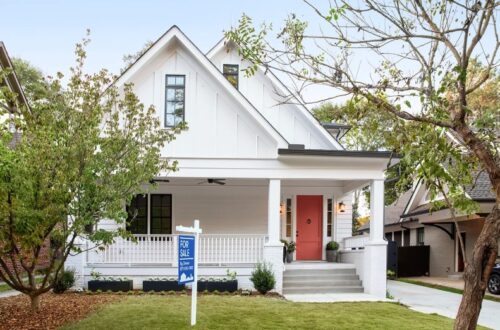Property no longer the best retirement investment in S’pore: DBS report, Invest News & Top Stories
SINGAPORE – Assets has lengthy been found as a pot of gold for Singapore buyers, but a new DBS analyze that arrived out on Tuesday (Oct 12) demonstrates that in the long term, it may possibly not be the treasure trove it utilized to be.
This is specifically as new properties are smaller and extra expensive as property selling price growth outpaces cash flow expansion.
Residence analyst Derek Tan from DBS Group Exploration explained to reporters in a media briefing that the residence price-to-income ratio is projected to strike a multi-calendar year high as houses will price 15 times the annual pay of a median-income family.
This usually means that a loved ones wanting to enhance to a similar-sized or even larger non-public house has to spend 15 periods what it is earning in a yr, dependent on existing price ranges.
Mr Tan reported: “This figure is the maximum we have witnessed in 20 years. It suggests that recent rates are not sustainable unless we see salaries enhance at a more quickly fee, and it also indicates that homes significantly will need to have dual sources of profits.”
Historically, the cost-to-money ratio – which actions residence rates above once-a-year revenue, which includes Central Provident Fund (CPF) contribution – has been from nine to just one, to 12 to one particular.
The DBS report also confirmed that the ordinary assets selling price for every sq ft (psf) has jumped 50 per cent since 2010, an maximize which has grown much more significant in new assets launches.
The psf price has risen from close to $1,200 in 2015 to $1,800.
Still, properties have been finding smaller instead of more substantial, even with the increased price tag, Mr Tan mentioned. 3-bedroom flats are now 900 sq ft to 1,000 sq ft on regular, and median home measurements for new launches have shrunk by some 20 for each cent.
But with new function-from-property norms and little ones undertaking residence-based studying because of to Covid-19, families may well want greater households, which will extend their price range to attain.
Information from DBS on virtually 1.2 million home loans found that the regular Singaporean can devote 20 for every cent of their revenue on servicing their house loan. This can even go up to 50 {d4d1dfc03659490934346f23c59135b993ced5bc8cc26281e129c43fe68630c9} their profits for some.
Middle-aged earners are the ones who stretch their profits the most to services their mortgage while acquiring a reduced propensity to spend in other assets.
Mr Tan also noticed that properties may not be as in need in the long run as buyers hope, with Singapore’s population expected to peak by 2045 if it proceeds on its present trajectory.
With tight immigration procedures, it might also be tricky for assets prospective buyers to find tenants who want to fulfill their rental selling prices.
In its place, other belongings can convey better returns and offer you liquidity as compared with residence, he reported.
“House yield is near to 2 for every cent or a little decrease,” he included. “But a portfolio with serious estate financial commitment believe in (Reits) that is professionally managed can have a lot more range and larger yields of 5 to 6 per cent on average, tax-absolutely free.”
He noted that the most effective-performing financial commitment in the very last two decades is the S&P500, a inventory market place index of the 500 premier publicly traded firms, so investors can think about a fund focusing on S&P500 shares. This is adopted by Singapore Reits, then non-public residence and Housing Board flats.
Ms Lorna Tan, DBS head of money setting up literacy, reported: “We can consider property like equities, bonds, Reits, trade-traded money, possibilities and unquestionably CPF savings to maximise the threat-reward from all investments.
“This will alleviate the unwanted circumstance of being way too weighted in home in our portfolio, with tiny still left over for other investments that can offer you greater returns and liquidity.”
